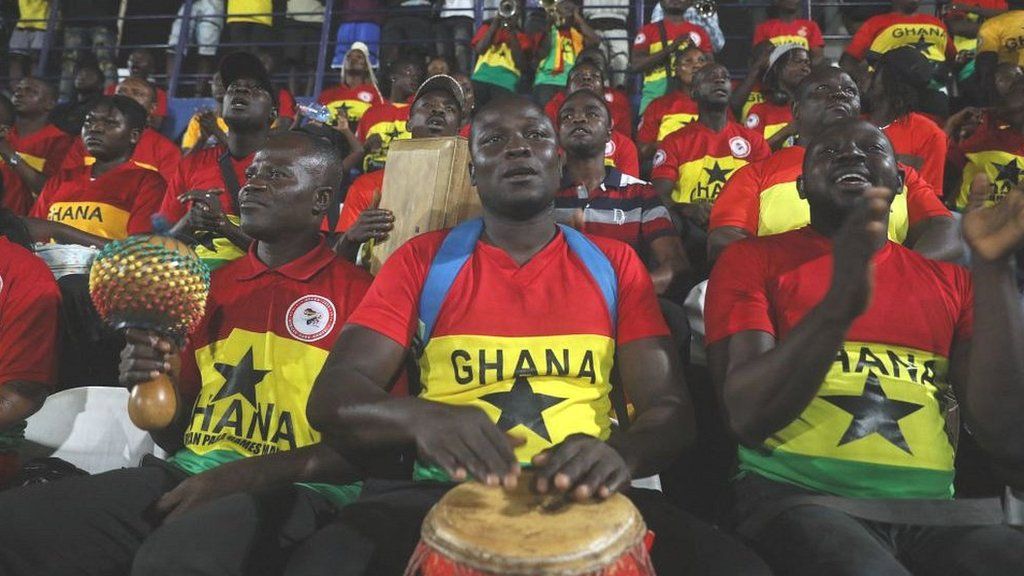As Ghana prepares to host the delayed 2023 African Games, local organisers have played down concerns, saying the country is "fully prepared" and "ready" to stage the multi-sport event.
The Games, originally scheduled to start in August 2023, were postponed because of a disagreement over marketing rights which delayed the completion of facilities.
There is ongoing disharmony between organising bodies the Africa Union (AU), the Association of National Olympic Committees of Africa (Anoca) and the Association of African Sports Confederations.
All three organisations play key roles in delivering the event which is now scheduled to officially begin with the opening ceremony in Accra on 8 March then close on 23 March.
"It is a golden opportunity for us as a country, for Ghana," Dan Kwaku Yeboah, spokesperson for the African Games' local organising committee (LOC), told BBC Sport Africa.
"The African Games started as far back as 1965, and with the exception of Nigeria no West African country has had the opportunity to host.
"We are ready from every angle: infrastructure, accommodation, transport, media. Every arrangement is on course except that the accreditation process has been delayed a bit," Yeboah added.
One of the delegations impacted by the slow accreditation process is Cameroon, whose athletes, officials and media contingent faced a race against time to secure their places in Ghana.
"At first our accreditation official had some difficulties in understanding how the platform functions, but during an online session with the LOC, he was edified on how the system functions," Cameroon National Olympic Committee (NOC) secretary general David Ojong told BBC Sport Africa.
With the event set to officially start on Friday, there have been other concerns over Ghana's ability to stage the Games.
"The warm-up track has already been damaged with signs of wear and tear and cracks, and it was only laid a few weeks ago," veteran South African sports commentator Duane Dell'Oca told the BBC World Service.
"Apparently it has been damaged by those rehearsing for the opening ceremony," he added
.
Excitement builds in Accra
Following the excitement of the recently concluded Africa Cup of Nations in Ivory Coast, Yeboah says fans, athletes and officials should look forward to an unforgettable pan-African event.
"Africa should expect the usual rich Ghanaian hospitality and culture on display - they should expect a colourful pomp and pageantry opening ceremony.
"They should expect a very high standard of competition and a good atmosphere around the Games because Ghanaians are excited."
Top AU representatives, various heads of state and more than 5,000 athletes and officials from across the continent are expected for the two-week event.
High-profile African stars missing
Twenty-nine sports have been confirmed for the African Games, with athletics, badminton, cycling, swimming, table tennis, tennis, triathlon and wrestling to serve as Olympic qualifiers for Paris 2024.
However, the timing of the Games means a number of prominent African competitors will choose not to attend - a problem for those publicising the event, according to Dell'Oca.
"They haven't been able to market the images of many top African athletes because there has been a great deal of confusion as to who is actually going to be competing," Dell'Oca said.
Former Kenyan volleyball player Jannet Wanja, who is now the women's national team trainer, also bemoaned the lack of high-profile stars.
"The games are often held back with the absence of top athletes and stars who could add more value. The top players are often held back from coming. It's not really helping. We matter too as Africans," she told BBC Sport Africa.
But, despite the challenges facing the event, she is optimistic of a successful African Games in Ghana.
"Most countries are still affected by the impact of the Covid pandemic and levels of preparations are really below what is expected, but I still hope for a successful African Games," Wanja added.
Ojong says, whatever the concerns over venues and facilities, all teams will face the same issues.
"If the LOC and international federations validate the venues fit for play, the teams just have to play at the venues the way they are," he said.
"Everybody is going to play at the same venue, making everybody at the same level of difficulty, and it becomes part of the game."

